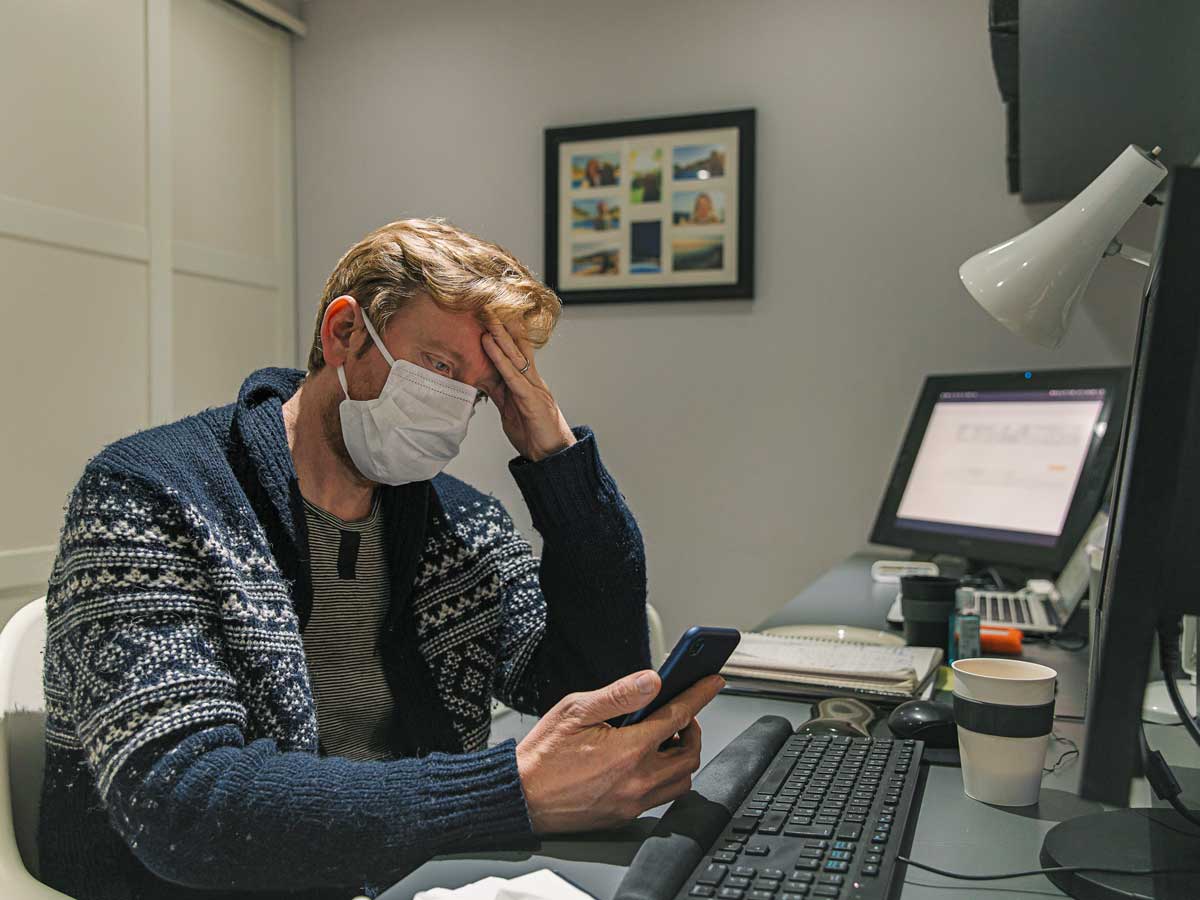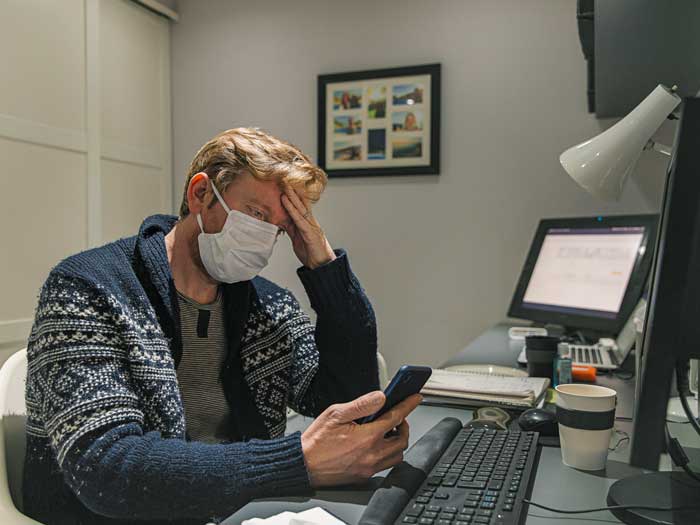
Fraud related to COVID-19 pandemic on the rise. Here’s how to avoid being scammed
 Do not respond to unsolicited medical advisory emails with links or attachments. The WHO recommends not to wear masks unless you are coughing or sneezing or taking care of someone who is sick.** (Getty Images/Justin Paget)
Do not respond to unsolicited medical advisory emails with links or attachments. The WHO recommends not to wear masks unless you are coughing or sneezing or taking care of someone who is sick.** (Getty Images/Justin Paget)
Any crisis or seasonal event that raises the fear factor for Canadians provides the ideal breeding ground for fraudsters. The current health crisis is no exception.
Repeatedly, there are new reports of scams relating to the coronavirus outbreak, from fake product ads and phishing attacks, to door-to-door solicitations, bogus fundraising and fraudulent phone campaigns. That’s why Canadians need to be extra vigilant during these stressful times.
The intent of these attacks can vary. Fraudsters’ main goal could be stealing money, accessing your banking information, engaging in identity theft or installing malware on your device, among others. More recent efforts include going door-to-door selling fake testing kits.
A NEW WAVE OF SCAMS
Fraud relating to global health pandemics is a somewhat new category, but the fundamentals are similar to others, says Jeff Thomson, senior RCMP intelligence analyst with the Canadian Anti-Fraud Centre in North Bay.
What elevates this one to a category of its own is the global level of fear of infection, he notes. Consumers desperate for hand sanitizers and cleaning products are responding to fake ads on Kijiji and other online shopping sites in droves, paying for products that never arrive. People’s fears are being stoked by misinformation campaigns offering non-existent solutions. On the flipside, for those wanting to help, fake fundraising programs are tapping into people’s willingness to assist those in need.
Phishing attacks are also capitalizing on public fear. “It could be a new email warning on COVID-19 with a link that will install malware on your computer. These activities rely on people’s knee-jerk reactions during these times,” says Thomson.
Fraudsters are good at getting people to flip that switch to buy or click on a link, he adds. On March 26, Prime Minister Justin Trudeau warned Canadians about a text scam* targeted at people looking to apply for the Canada Emergency Response Benefit. “You should never blame yourself if it happens,” says Thomson. “These are professional conners that know what they are doing. Remember, they study behavioural science as much as the experts do, so they know how to get people to react.”
HOW TO STAY SAFE
As with any other fraud activity, Thomson reminds consumers to take extra care and instill safe practices, such as:
- Make sure your computer antivirus and anti-malware programs are up to date. Check the security settings on your accounts and increase them where you can (e.g. add two-factor authentication or increase alert settings)
- Beware of anything that appears to be false or misleading information. “Follow reputable news sources such as Health Canada,” he says.
- Beware of high-priced items for sale online. “Also do your due diligence on the seller and how they are asking for payment,” says Thomson.
- Do not respond to unsolicited medical advisory emails with links or attachments. “Keep in mind that government agencies are not sending out mass email campaigns,” he advises.
- Ignore ads for miracle cures, herbal remedies, test kits or preventative medicines. “No such things exist for this outbreak. It’s a 14-day quarantine, period,” says Thomson.
- Do not be seduced by ads for testing kits. Hospitals or official testing centres are the only place to get safely tested.
IF YOU’VE FALLEN VICTIM TO A SCAM
It’s important to take the necessary steps to mitigate any damage if you have made a mistake in the spur of the moment.
- If you believe you are a victim of a fraud crime, first and foremost report it to your local police.
- If you have sent money in response to a fake ad, contact the email service provider.
- If your money was sent by e-transfer or you see a suspicious account activity, notify your bank immediately.
- If you suspect you have been a victim of identity fraud, contact the credit bureaus.
To stay up to date on scam activity and best practices, visit the Canadian Anti-Fraud Centre website. “We’re here to answer questions, provide advice and steer people in the right direction.”
MORE COVID-19 UPDATES
Stay up-to-date with the latest news related to the accounting profession, including a compilation of external resources and online news articles, from avoiding fraud to explaining potential financial reporting and audit implications of the COVID-19 pandemic.